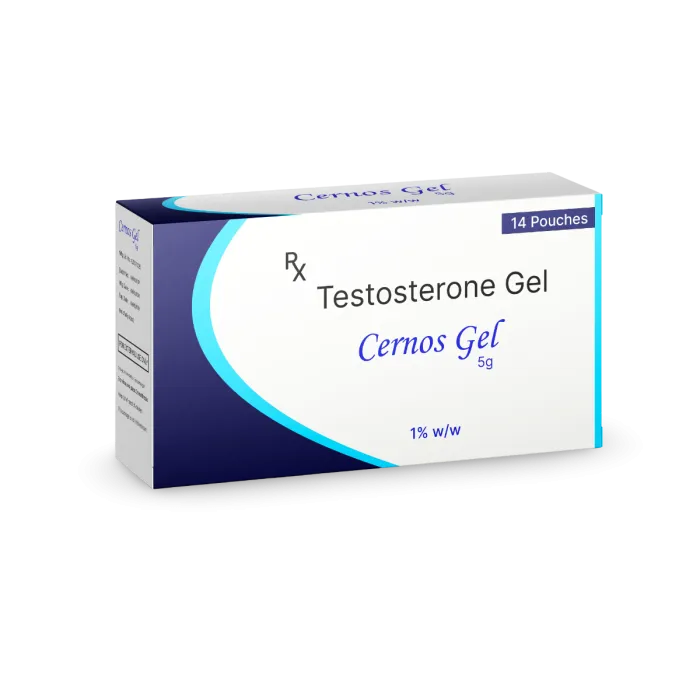You may have heard whispers at the gym or online about zinc’s ability to enhance testosterone levels, but what’s the true story?
While the connection between zinc and testosterone is not always clear, exploring does zinc increase testosterone can provide a useful alternative for maintaining hormonal balance and overall health in men or Assigned Males at Birth (AMAB).
So, let’s dive in and uncover the true fact behind this query.
Does Zinc Increase Testosterone Levels
Yes, although zinc is known to manage immunological responses and boost immunity, it also helps regulate testosterone levels.
Hypogonadism (a condition in which males have low testosterone levels) is often connected to low levels of zinc. Zinc has been proven essential for testosterone synthesis, particularly in those with zinc deficiency.
In a study of older males with moderate zinc deficiency, treatment with zinc supplements for six months resulted in a significant rise in blood testosterone levels, on an average of 8.3 nmol/L to 16.0 nmol/L.
Save up to 90% on your medicine bills

Cernos Gel 1%w/w

Cernos 40 Mg Soft Gelatin Capsule

Sustanon 250 Injection

Carmel Organics Ashwagandha Extract Tablets
How to Take Zinc to Boost Testosterone
The effect of zinc on testosterone levels depends upon the type of supplement and its dosage. It is advisable to take zinc from dietary sources, such as oysters, beef, crab, fortified cereals, pork, beans, chicken, yogurt, nuts, and oatmeal.
Zinc supplements, like zinc gluconate, zinc sulfate, and zinc acetate, can also help, especially for those with dietary restrictions.
The recommended daily intake for zinc varies with age and gender. In general, a safe and effective daily zinc dose for symptoms associated with low testosterone in males is 50 mg of zinc twice a day for one to four months.
While zinc supplements can be useful, excessive intake can cause toxicity, resulting in symptoms such as Nausea and stomach cramping. Therefore, it is essential to consult a healthcare expert before beginning supplementation
Alternatives to Zinc to Boost Testosterone

Despite its efficacy in treating low testosterone, the safety of zinc isn’t well-researched. Lifestyle modifications and medical treatment, including testosterone Replacement Therapy (TRT), are the safest approaches to increasing testosterone levels.
- Engage in daily workouts to enhance Testosterone, especially strength training
- Get enough sleep since poor sleep quality can have an adverse effect on hormone levels
- Have a well-balanced diet, especially a low-carb mediterranean diet (containing vegetables, legumes, fruits, and whole grains)
- Testosterone replacement Therapy (TRT) through testosterone pills, injections, patches, gels, or pellets can also help to restore testosterone to normal levels.
However, you have to be aware of the potential risks and benefits of testosterone boosters to reap the most out of them.
Key Notes
Zinc is essential for maintaining healthy testosterone levels in males. Several studies have indicated that zinc deficiency can lower testosterone levels, but zinc supplementation can help raise its levels, particularly in moderately zinc-deficient individuals.
Although zinc supplements might help boost testosterone levels, it’s essential to be aware that taking too much can be potentially dangerous.
However, if you wonder does zinc increase testosterone and feel you have Hypogonadism, you should contact your doctor for an accurate diagnosis and treatment.
They may suggest other scientifically proven treatment methods, such as testosterone Replacement Therapy and lifestyle changes to enhance your testosterone levels effectively.
Frequently Asked Questions
Does zinc increase testosterone in females?
Yes, zinc does affect testosterone levels in females, particularly postmenopausal women. Research shows that zinc supplementation can significantly enhance testosterone and sexual performance in postmenopausal women with low serum zinc levels. Buy Now
What blocks zinc absorption?
Phytate, found in whole grains, nuts, seeds, and legumes, is one of the most common inhibitors of zinc absorption. It creates insoluble compounds with zinc, decreasing its absorption into the body. Buy Now
Should you take zinc at night or in the morning?
Experts believe that zinc is best absorbed on an empty stomach. Hence, it should be taken either one hour before meals or two hours after eating to reduce interference with dietary components such as fiber and certain minerals that can restrict its absorption. Buy Now
What form of zinc is best for testosterone?
The rate of zinc absorption varies depending on its form. However, zinc picolinate is usually more effectively absorbed by the body than other forms, such as zinc gluconate. Better absorption may make zinc picolinate more effective in boosting testosterone levels. Buy Now
Can zinc assist with testosterone-related problems like low libido and Erectile Dysfunction (ED)?
Yes, zinc can assist with testosterone-related difficulties such as low libido in men and Erectile Dysfunction, particularly if these symptoms are caused by low testosterone levels due to zinc deficiency. However, it is essential to discuss any underlying health issues with a healthcare professional. Buy Now
Cheap Medicine Shop only refers to credible, authoritative sources for our content. If you’re curious about how we ensure the integrity of our content, we encourage you to read our Content Information Policy.














